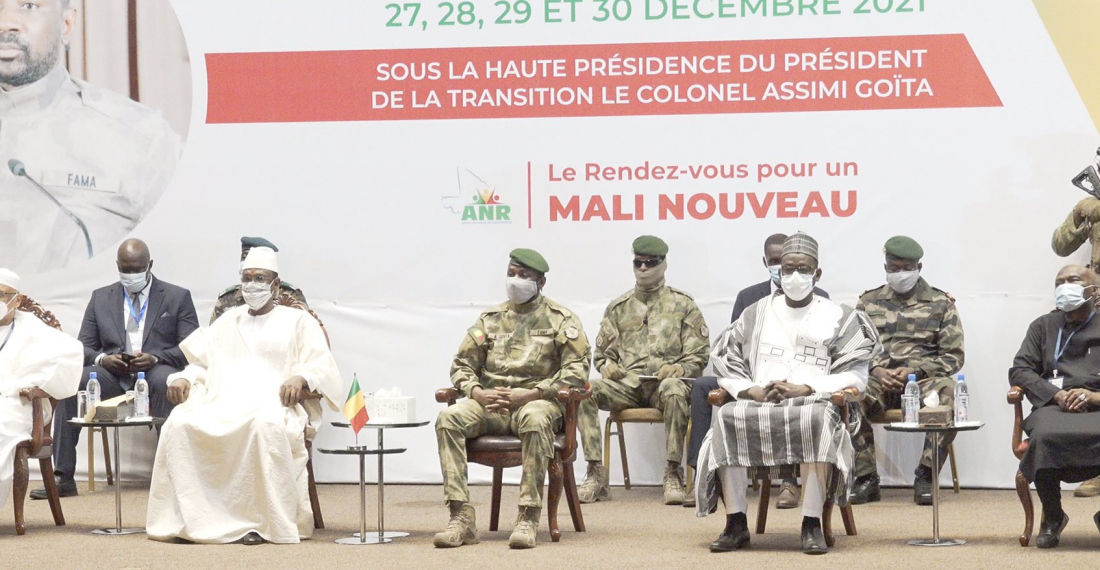Participants in the “National Conference on Refoundation”, presented as the final phase of consultations prior to elections and a return of civilians to power in Mali, proposed Thursday (30 December) in Bamako to extend the current transition from “six months to five years”.
The military leadership of Mali staged coups d'état in the country in August 2020 and May 2021, after which they had committed themselves, under pressure from the Economic Community of West African States (ECOWAS) and the international community, to hand over power to civilians after presidential and legislative elections initially scheduled for February 2022.
However, the junta, led by Colonel Assimi Goïta, has finally informed ECOWAS that it was unable to meet the agreed timetable and had instructed the National Assizes to draw up an electoral calendar. ECOWAS reiterated in mid-December its demand for elections on 27 February to return power to civilians and threatened the junta with new sanctions if it failed to fulfil its initial pledge.
“The participants were in favour of extending the transition period in order to carry out the institutional reforms that will allow for credible, fair and transparent elections. The deadlines put forward vary from six months to five years,” said a document read at the end of the conference, in the presence of Colonel Goïta.
Presented by the authorities as a crucial moment in the transition since the putsch of 2020, these meetings, which took place from Monday to Thursday in Bamako, were boycotted by many Malian organisations.
The conference participants also recommended “developing new military partnerships with military powers” and “disbanding all militias and integrating them into the Malian army,” the final report said.
These recommendations come at a time where tensions are already high between Mali and the international community, notably due to the suspicion that mercenaries from the private Russian paramilitary group Wagner have been deployed in the country. However, Bamako denied on 24 December these accusations made by about 15 western powers involved in the fight against jihadism in Mali.







